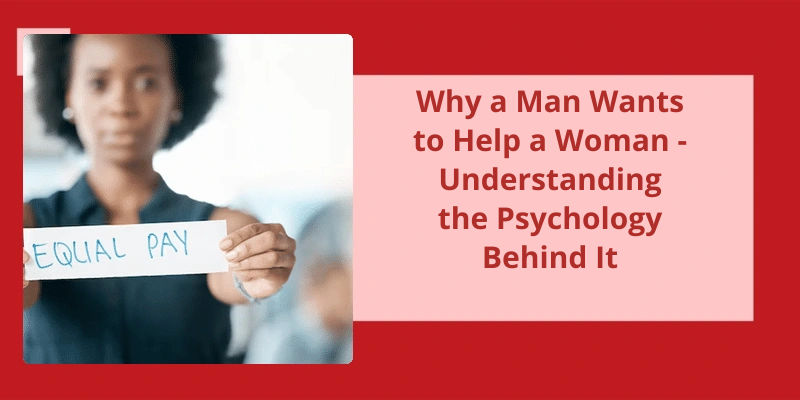Relationships can be rocky, and it's natural for arguments and fights to occur from time to time. However, what follows after a heated discussion can be equally as challenging. Overthinking can cloud one's judgment and cause undue stress and worry. To avoid this, it's important to create distance from the situation and take time to calm down. Engaging in distracting activities such as listening to music or practicing meditation can help alleviate immediate emotional distress. Once calmer, reflecting on the situation can lead to a better understanding of what transpired and how to improve communication in the future. Additionally, talking it out with the other party involved can provide clarity and a sense of closure. Finally, implementing these strategies consistently is key to preventing overthinking and reducing stress in future arguments.
How Do You Get Over the Awkward Phase After a Fight?
Experiencing a fight with someone can be challenging for both parties involved, especially when things get heated and emotions run high. Naturally, after a fight, theres often a lingering feeling of awkwardness that can be difficult to shake off. However, there are some effective ways to tackle this and move beyond any discomfort or tension.
One of the primary methods to avoid feeling awkward after an argument is to prevent fighting in the first place. This can be achieved by communicating openly and honestly with the other person, listening actively to their perspective, and avoiding any personal attacks or criticism. In this way, you can ensure that minor disagreements don’t turn into full-blown fights.
Another essential aspect is learning how to let go and not hold grudges. It’s important to acknowledge that everyone has flaws and makes mistakes, ourselves included. Forgiveness can be a powerful tool in overcoming any tension and avoiding awkwardness. Avoid overanalyzing the argument or replaying the disagreement over and over in your head, as this can only increase any discomfort or hurt feelings.
Making a physical show of affection can also help overcome any awkwardness after a disagreement. A hug or a sincere apology can go a long way in showing the other person that you care and that youre committed to moving past the conflict. Sometimes, a simple apology and acknowledgment of where you were wrong can do wonders to repair the relationship.
If awkward silences persist, try breaking them up by bringing up positive topics of conversation. Talk about things youre both interested in, share some interesting news or stories, or simply ask how their day is going. This can help shift the focus away from the argument and towards more positive interactions.
Now that we’ve discussed the typical emotions that may arise after a fight with your significant other, it’s important to address what you can do to move forward and repair your relationship. It’s understandable that you may feel overwhelmed or unsure of how to proceed, but rest assured that there are steps you can take to heal and grow as a couple.
Is It Normal to Feel Anxious After a Fight?
Often, after a fight, it’s normal to feel awkward and uncertain about the future of your relationship. It’s natural to feel anxious about your relationships well-being and whether or not you and your partner will be able to move forward together. But it’s important to remember that occasional disagreements are a normal part of any healthy relationship.
The key to moving past a fight is to find a way to reconnect with your partner. Sometimes, this may involve an apology or even making a grand romantic gesture. Other times, it may be as simple as sitting down and having an honest conversation about your feelings. Whatever the case may be, it’s important to find a way to move forward and forgive each other.
However, if you find that youre unable to reconcile on your own, couples counseling may be a great option for you. A trained therapist can help you and your partner communicate more effectively and work through any underlying issues that may be contributing to your fights.
But when the stress of fighting starts to impact your mental health and overall happiness, it’s time to take a step back and re-evaluate your relationship. Dont be afraid to seek out help if you need it.
At the end of the day, the most important thing is to remember that your relationship is valuable and worth fighting for. Be patient, be kind, and always strive to understand each other. With time and effort, you and your partner can work through any disagreements and come out stronger on the other side.
How Past Traumas Can Impact Current Conflicts in a Relationship
- Feeling reactive or defensive in response to certain triggers
- Difficulty with trust or vulnerability
- Struggling with emotional intimacy
- Fear of abandonment or rejection
- Recurring feelings of anger, anxiety or depression
- Tendency to distance or isolate oneself from partner
- Frequent disagreements or conflicts
- Repeating patterns in past relationships
It’s inevitable that we will encounter disagreements and arguments from time to time. However, it’s important to remember that how we handle these situations can greatly impact our mental health and the quality of our relationships. Fortunately, there are steps we can take to deal with disagreements in a healthier, more positive way. These steps include taking a break, removing ourselves from the situation, reflecting on the disagreement, and practicing consistent self care. By keeping these tips in mind, we can learn to effectively manage conflict and move forward in a healthy way.
How Do I Stop Feeling Bad After an Argument?
Arguments can be some of the most emotionally charged moments in a relationship, causing hurt and anger to both parties involved. It can be difficult to move on from these situations if you don’t take the time to address the root of the problem. While it may seem tempting to just ignore these feelings, it’s important to take a break from the discussion and remove yourself from the situation for a while. This can help you to process your emotions and come back to the discussion with a level head.
Another effective strategy for coping with disagreements is reflection. Take some time to think about what was said, how you felt during the conversation, and what your own role was in the disagreement. Reflecting on the situation can help you gain clarity about the situation and can also give you some insight into what steps you can take to prevent future conflicts.
In addition to taking breaks and reflecting on the situation, it’s also important to create a plan for moving forward and practicing consistent self-care. Start by creating a plan for how you’ll address disagreements in the future, either on your own or with the help of a therapist or counselor. This can include setting boundaries, developing better communication skills, and seeking support when you need it.
Self-care is also an essential component of managing conflict in relationships. Whether youre dealing with stress from work, family, or personal issues, it’s important to prioritize your own mental and emotional health. This might include practicing mindfulness, exercise, or spending time doing things that you enjoy.
Finally, remember that it takes time to heal from arguments and disagreements. Be patient with yourself and your loved ones as you work through these difficult moments. By taking a step back, reflecting on the situation, creating a plan for moving forward, and practicing consistent self-care, youll be better prepared to handle disagreements with grace and compassion.
How to Apologize and Make Amends After an Argument
- Take responsibility for your words or actions.
- Express genuine remorse for any hurtful behavior.
- Be specific in your apology and acknowledge the other person’s feelings.
- Ask for forgiveness and offer to make things right.
- Listen to the other person’s response without being defensive.
- Follow through on any promises or actions to make amends.
Conclusion
In conclusion, overthinking after a fight can be detrimental to one's mental health and relationships. It's crucial to create distance from the situation, distract yourself with activities like music or meditation, reflect on the situation when you're calmer, and talk it out with your partner or a trusted friend. However, merely knowing these steps isn't enough; implementation is key to stopping overthinking after a fight. With consistent effort and practice, it's possible to overcome overthinking and maintain healthy communication in relationships. Remember to be patient and kind to yourself as you embark on this journey towards a more peaceful and harmonious life.






